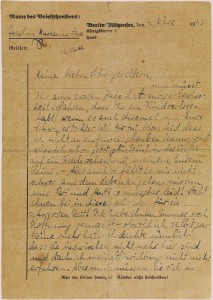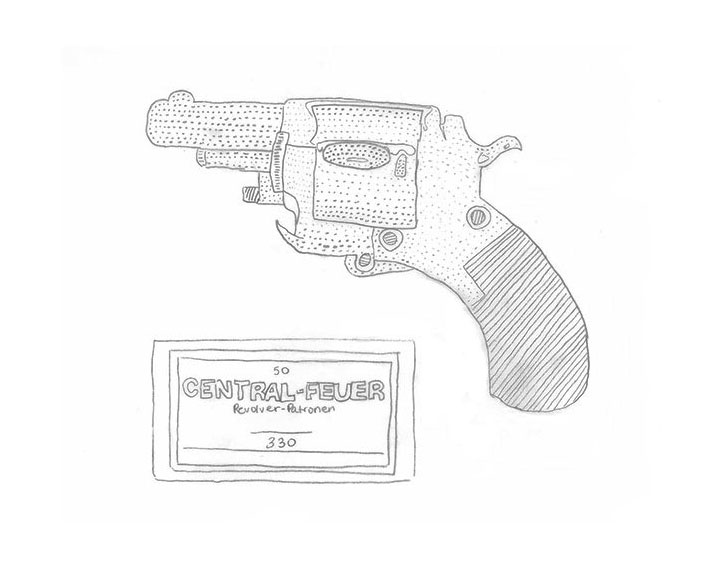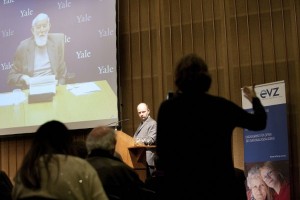In the archive of the Jewish Museum Berlin, there is a moving letter that Marianne Joachim wrote to her in-laws on 4 March 1943. That same day at the Berlin Plötzensee detention center, the young woman was executed.

Farewell letter from Marianne Joachim née Prager (1921 – 1943)
© Jewish Museum Berlin, photo: Jens Ziehe
What had happened? Marianne and Heinz Joachim supposedly joined a resistance group in 1941 led by Herbert Baum. A Jew and communist, Baum had been gathering like-minded friends around him since 1933 to generate resistance against the politics of National Socialism. On 18 May 1942, the group attempted to set fire to the anti-Soviet exhibit “The Soviet Paradise” in Berlin’s Lustgarten. Among the members jailed in short order and sentenced to death were Marianne and Heinz Joachim.
We learn from her letter that finding out that her husband had already been executed on 18 August 1942 in Berlin Plötzensee was the “heaviest stroke of fate” for Marianne. Her greatest concern was for her parents, Jenny and Georg Prager. They were deported in March 1943 to Auschwitz and Theresienstadt where they were killed. Marianne’s sister, Ilse, was able to escape on one of the last Kindertransports to England. Heinz Joachim’s father Alfons, died at the end of 1944 at the concentration camp Sachsenhausen. His mother, Anna, did not have a Jewish background and therefore survived the National Socialist period, as did his brothers. → continue reading
 “Weapons and Dignity” is the title of the chronicle of an object in the recently published 25th anniversary brochure of the German Historical Museum. It is about a revolver that was offered as a donation to the Jewish Museum, met with great interest there, but finally found its way into the collection of the German Historical Museum. Why?
“Weapons and Dignity” is the title of the chronicle of an object in the recently published 25th anniversary brochure of the German Historical Museum. It is about a revolver that was offered as a donation to the Jewish Museum, met with great interest there, but finally found its way into the collection of the German Historical Museum. Why?
The story: a woman in Berlin during the National Socialist era, fearing for her life because she was ‘half-Jewish,’ obtained a revolver so that, should she be threatened with deportation, she could end her life instead. She survived the era of persecution and kept the revolver as a souvenir, eventually giving it to a neighbor. He in turn made contact with the Museum when he was to be required by changes in the law regulating weapons possession to register the weapon or surrender it to authorities. For an institution like the Jewish Museum Berlin, where biographical narratives play an important role in the collections and in the permanent exhibition, this revolver would have been a very welcome ‘strong’ object, given the immediacy of its provenance. → continue reading
How our culture of remembrance is changing in view of a disappearing generation of contemporary witnesses to World War II was the subject of a conference called “Preserving Survivors´ Memories – Digital Testimony Collections about Nazi Persecution” at the Haus der Kulturen der Welt in Berlin from 20 to 22 November 2012.

Geoffrey Hartman per video connection © Birgit Meißner, EVZ
The conference was kicked off by Yale University comparative literature professor (emeritus) and Holocaust studies pioneer, Geoffrey Hartman. Born in Frankfurt in 1929, Hartman emigrated to England in 1939 as part of the refugee children’s movement. Together with his wife Renée, a survivor of the Bergen-Belsen concentration camp, he became involved in the founding of the Fortunoff Archive, which has recorded video interviews with Holocaust survivors since the 1970s. He views these video interviews as constituting a genre of their own, whose greatest significance comes from allowing survivors to speak for themselves. → continue reading


